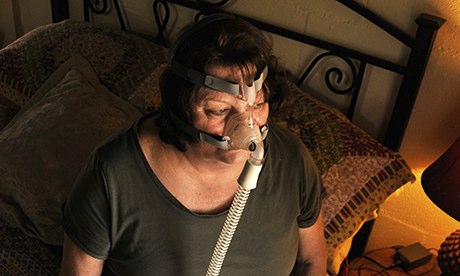
I have been dog tired since my teens. As I'm 41 next month, that's a long time to be knackered. Not just a bit worn out, but the kind of tiredness you experience when you have a newborn baby. So drunk with fatigue that my brain itches, it's hard to follow a simple conversation, words swim on a page and I'm clumsy and forgetful.
Tiredness is a modern epidemic. We all moan about it, fantasising about a good, long sleep. How do you know that your tiredness is different or worse than anyone else's? You don't. I have tried unsuccessfully various self-help measures, from the sensible – exercise and going to bed earlier – to straw-clutching – allergy testing and Chinese herbalism.
Numerous blood tests were always normal, so I thought that I was just useless and lazy for failing to cope with life, as everyone else seems to. The one explanation that was offered was depression. I have been diagnosed with chronic, major depression for eight years, and it has always expressed itself as extreme fatigue; an overwhelming desire to crawl in to bed, sleep for ever and not bother with anyone or anything. It has been unresponsive to many different antidepressants and talking therapies.
This spring, it worsened to the point where residential treatment was considered. I had ground to a complete halt. My life consisted of waking up as tired as when I went to bed, quickly taking the kids to school, going back to bed for several hours, then doing the bare minimum required to keep my business ticking over before flaking out, exhausted, on the sofa. At weekends, I would sleep in as late as 4pm. I was utterly despondent and felt as if I was dying. Then, by chance, I heard a discussion on obstructive sleep apnoea (OSA) on the BBC's Woman's Hour. The symptoms described were identical to mine. It had simply never occurred to me that the problem could be with the quality rather than the quantity of my sleep.
If you suffer from OSA, the throat muscles relax during sleep to the point of collapse, blocking the airway. Faced with the choice of sleeping or breathing, the brain rouses the person sufficiently to restart breathing. People with the condition may not remember waking, but this arousal lifts them out of deep sleep. OSA is officially diagnosed when a person stops breathing for at least 10 seconds (an apnoea), at least 10 times an hour, though some sufferers can have hundreds of apnoeas an hour, so they never get any deep sleep, leaving them exhausted. The physical stress of sleep deprivation then puts them at risk from several secondary conditions, such as diabetes, stroke and heart disease.
Sure enough, my home sleep study (done using portable recording equipment, then downloaded and analysed by specialists) showed evidence of OSA – but also another condition, upper airway resistance syndrome (UARS). While I had heard of OSA, UARS was completely new to me. Indeed, information about it is scarce, and often conflicting.
Some definitions suggest multiple hourly apnoeas, all lasting less than 10 seconds. Others describe a cycle of the already too small airway getting progressively tinier until the person awakes without reaching the point of complete obstruction (a hypopnea). Either way, UARS sufferers appear to have an increased sensitivity to changes in breathing, so are easily aroused and very fatigued, but without the other classic signs of OSA.
The typical OSA sufferer is male, middle-aged and overweight with a big neck, and suffers from extreme fatigue, a sore throat and headache on waking, and snoring, spluttering and choking during sleep. UARS is more commonly seen in young, thin women. Perhaps this explains why GPs may not often think of sleep disorders when treating them. This, combined with a general lack of information about the condition, means it tends to be misdiagnosed, usually as depression, chronic fatigue syndrome or fibromyalgia.
The cause of UARS is undersized airways that are easily compensated for during the day, but prone to obstructions when relaxed during sleep. The signs include mouth breathing, an inability to sleep on your back, an overbite, cold hands and feet and sometimes loud snoring. It can also be accompanied by insomnia.
Treatment for both the conditions, though, is the same: continuous positive air pressure (CPAP), a small machine that pumps pressurised air via a facemask while you are asleep, keeping the airway open. Accordingly, that is exactly what the specialists recommended for me. After a month, I am still getting used to sleeping with the mask on. It will be a while before I feel like I have caught up on all the sleep I have missed, but I am noticeably sharper and very optimistic about further improvement. It is a massive relief to know that the way I felt was not just because I was being lazy. As treatment progresses, I hope to come off the antidepressants that I was told to continue taking. Perhaps I never really had depression at all.
Tiredness can have a huge impact on your life – and, on reflection, my life revolved around tiredness. My social life died because I had no energy to go out. My business was set up not because of entrepreneurial ambition but because I was so exhausted by a stressful job and parenthood that I could not envisage coping with a normal, structured job.
I am overjoyed to finally have an answer and a treatment, but also sad about the opportunities not taken and times with friends and family that I have missed. If you are constantly tired, please talk to your GP. Do not put up with it for as long as I did.

